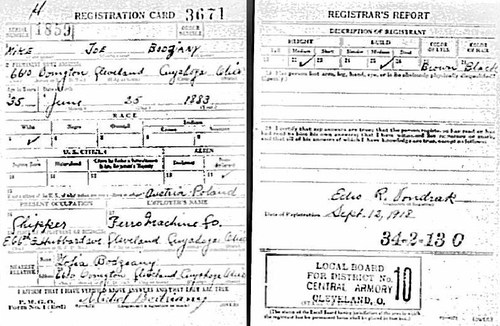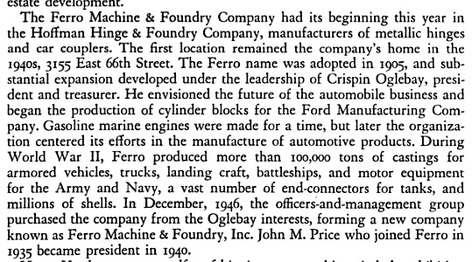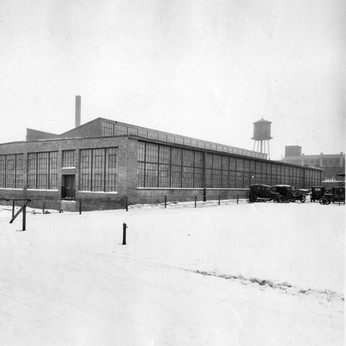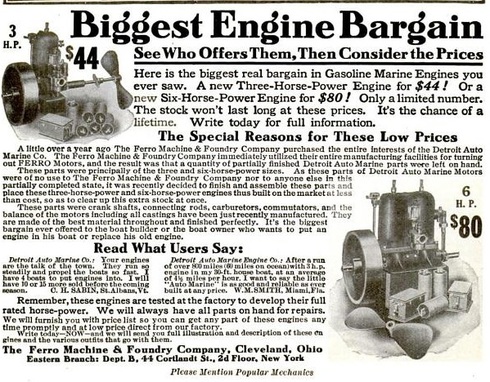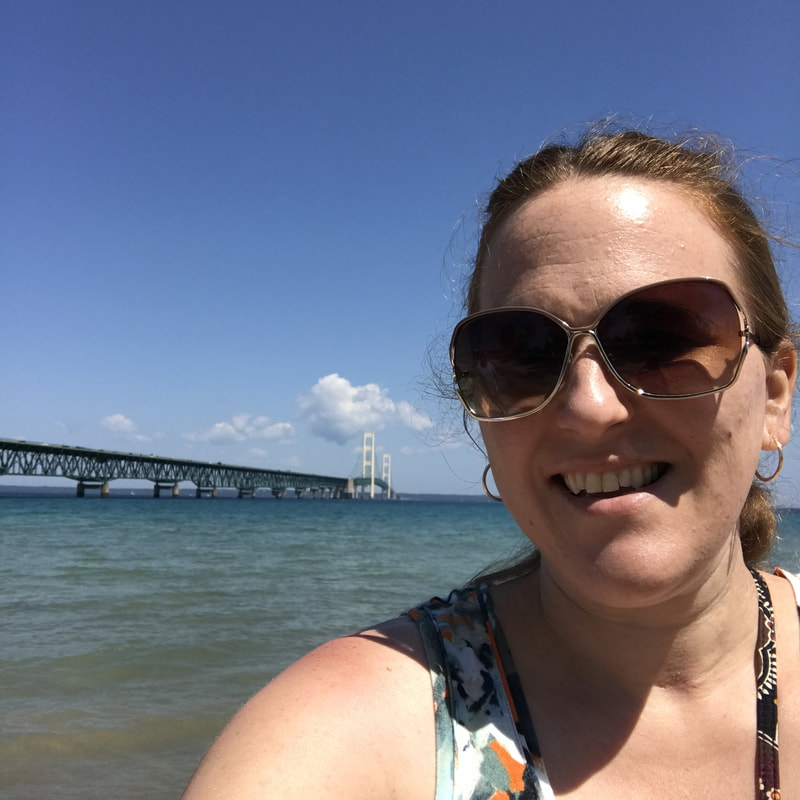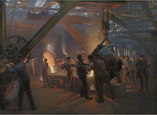 Source: Wikipedia.org
Source: Wikipedia.org As you can imagine, foundry work was a hazardous job. Not only was there a constant danger of serious burns from molten metal, but working with heavy machinery often led to major physical accidents, resulting in crushed bones and amputations. Repetitive work with heavy metal tongs and molds caused arthritis and other bone and joint problems. Decibel levels were unsafe and caused hearing loss, and looking at white-hot molten levels with no protection was dangerous to the eyes. Foundries are full of harmful chemicals which can lead to cancer and other health problems over long-term exposure. Michael passed away of stomach cancer when he was 58 years old. Granted, the average life expectancy was lower back then (which probably had something to do with hazardous working environments everywhere), but I think it's safe to assume that his cancer was probably somehow linked to his work in the foundry. (There was no OHSA back then.)
